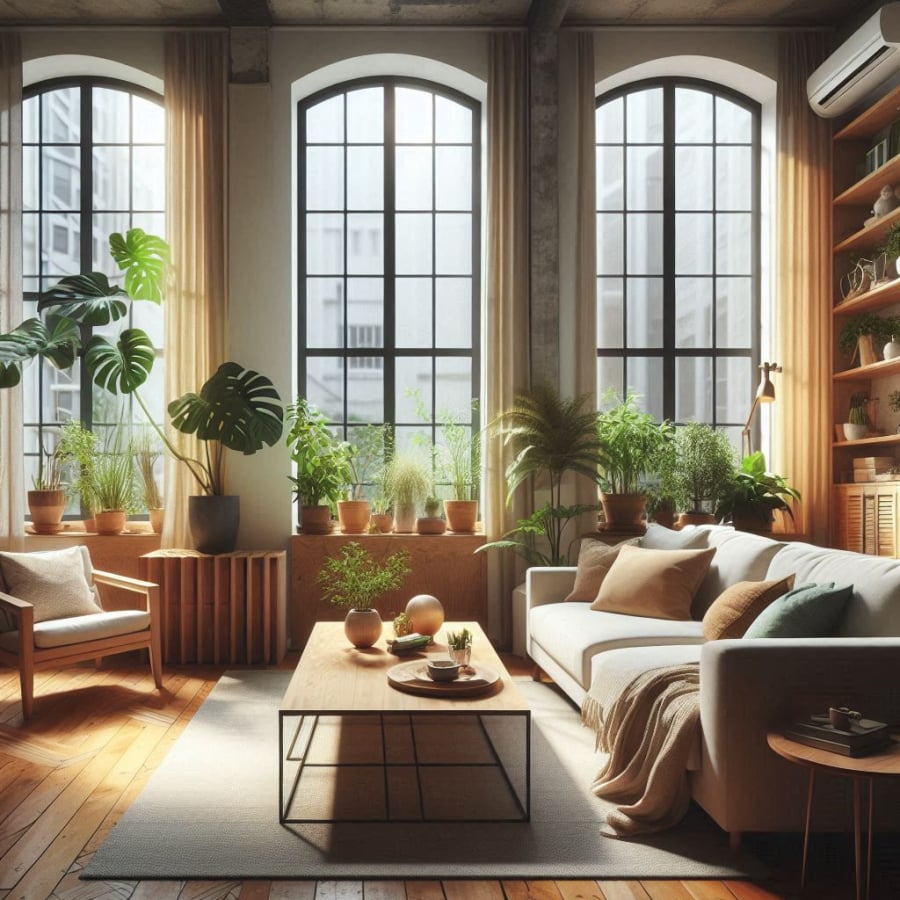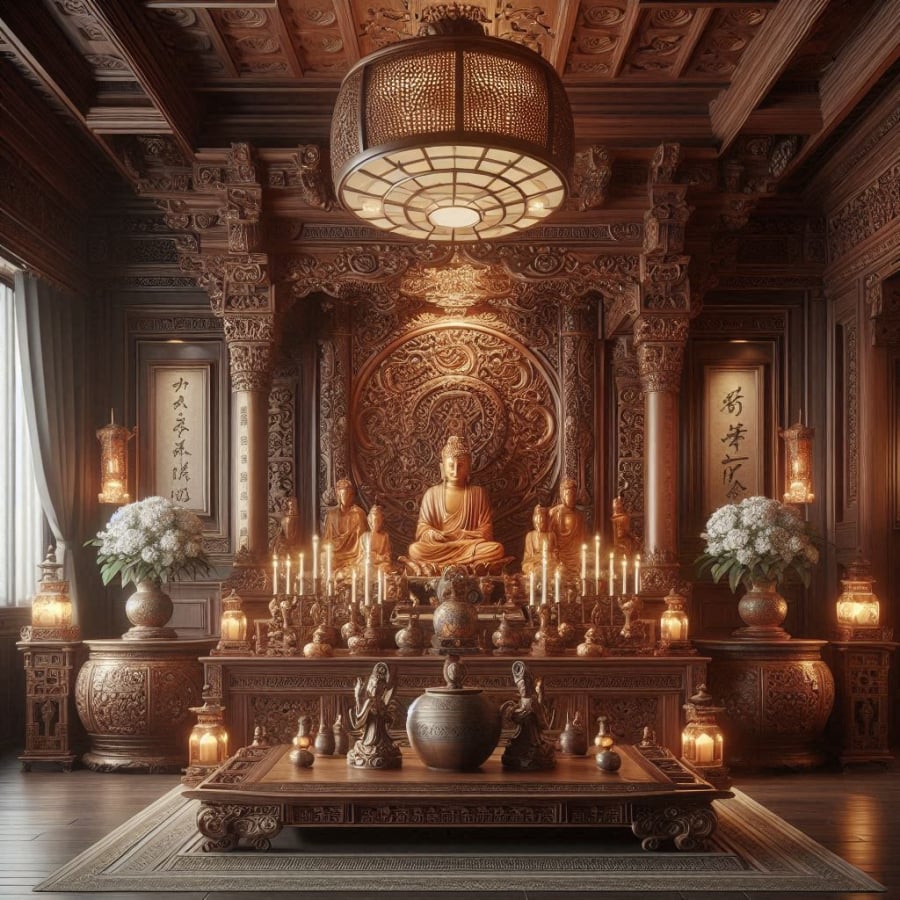Feng shui for living spaces is a vast field, accumulated by our ancestors over many generations. When constructing a house, people usually pay attention to various factors such as wind direction, air flow, lighting, along with the selection and arrangement of furniture. The main goal of these considerations is to create good feng shui, bringing prosperity and luck to the homeowners.
When arranging the indoor space, our elders emphasize the importance of paying attention to two main areas. Whether the space is limited or spacious, it is necessary to apply the principle of “one bright and one dark” to these two places. Only then can the feng shui be improved, attracting wealth and promoting good energy for the house!
Light in the Living Room
The living room is always considered the center of the house, where family members gather, symbolizing unity, happiness, and peace. Moreover, it is also the place that welcomes fortune, attracts positive energy, and brings good feng shui into the living space. Therefore, whether the living room is beautifully designed or not, it is important that it is always well-lit.
Lack of light in the living room is not advisable. From a practical perspective, natural light helps kill bacteria, prevents dampness, and keeps the space clean and airy. Moreover, light also represents yang energy, bringing positive, comfortable, and healthy feelings to the household.

Insufficient lighting in the living room is not recommended
In feng shui, the living room plays an important role as it is the area that contains the family’s fortune. Keeping this space bright and airy is necessary to ward off bad luck and purify the air in the house. As a result, the God of Wealth will be pleased, bringing warmth and peace to your family.
On the contrary, if the living room is dark, it will easily attract negative energy. This gloom can make people feel tired, lose their spirit, and become lazy and unwilling to move. Even family members may feel stuck and stagnant. It is no surprise, then, if the God of Wealth and good luck also become indifferent and reluctant to visit.
Dark Area: The Altar
According to feng shui concepts, there is a famous saying: “A bright living room brings family prosperity,” but our elders also remind us that: “A bright altar leads to the decline of descendants.” Why is there such a contrast?
This is because the living room is considered the place that attracts wealth and luck, while the altar is a sacred space for worshiping ancestors and deities, requiring tranquility and peace. If the worship area is too bright, whether it is natural or artificial light from lamps, it may cause unwanted effects. This goes against the principles of feng shui, as yin places should avoid bright light.
Too much light can disturb the quiet atmosphere, causing the altar to lose its energy, which then negatively affects the peaceful rest of the ancestors. As a consequence, the family may struggle to encounter good fortune and prosperity.
The altar should be maintained in a clean and solemn state. Use moderate lighting, preferably with yellow or red light bulbs, to create a warm and dignified atmosphere. At the same time, avoid direct light from the outside as well as wind blowing into the altar area to protect this sacred space from disturbance.

The altar should be maintained in a clean and solemn state
Arranging Lighting for the Living Room and Altar
To ensure that the living room is always filled with natural light, homeowners can improve the space by adding more windows, enlarging the main door, or constructing a skylight. If welcoming natural light is not feasible, installing light fixtures is a reasonable alternative to maintain brightness in this space. However, consider arranging the lighting system thoughtfully to ensure aesthetics and comfort in the living room.
Traditionally, the altar room is designed separately to ensure tranquility, and it is advisable not to place the altar near the entrance. If the location cannot be changed, curtains can be used to block the view, and objects such as lucky bamboo can be placed to ward off bad luck.
For families with an altar in the living room, avoid placing the altar in the brightest spot in the house. Adjusting the lighting should be done carefully, and using a shrine cabinet will enhance privacy while reducing direct light. Additionally, refrain from placing the altar next to the sofa or guest-receiving area to maintain the solemnity and dignity of the worship space.
Information for reference only, subject to personal interpretation
Title: Unraveling the Ancient Wisdom: “Homes of Pure Yin Miss Out on Marrying Their Daughters, While Houses of Pure Yang Find it Hard to Wed”
The ancient philosophy of yin and yang posits that the very fabric of the universe is woven from the interplay of opposing forces. This cosmic dance of light and dark, of clear and murky energies, gave birth to the very essence of our existence – the heavens above and the earth below. This celestial ballet, a harmonious union of yin and yang in the ether, is the very cradle of creation, bringing forth the myriad wonders of our world.





































